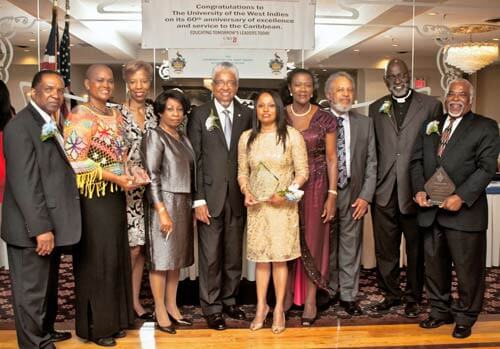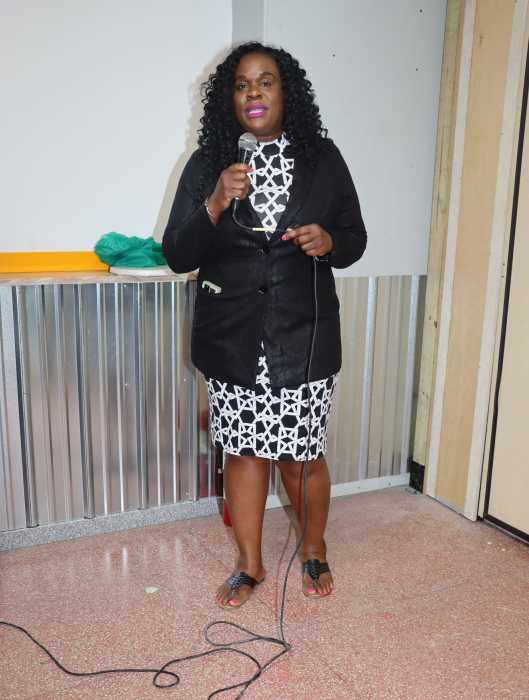Dr. E. Nigel Harris, vice chancellor of the University of the West Indies (UWI) told a gathering of UWI alumni at its recent Pelican Awards event at Antun’s in Queens, that UWI graduates are among the top-five list of graduates in the world rankings.
Harris, who stood in for Chancellor Sir George Alleyne, who had undergone a recent medical procedure and could not travel to New York, said Dr. Alleyne was in good health but had to stay close to home, due to the procedure.
Folllowing is an excerpt from the vice-chancellor’s address:
“I make the point time and again that our university’s richest product is our graduates and it is important that both university and alumni celebrate these successes in every way possible.
The University of the West Indies spent a number of hours (recently) examining the world ranking numbers of UWI that have just been published, with a view to Web_06_25 determining how we fared and how we might continue advancing our position.
As some of you know, there are increasing numbers of organizations that rank unversities in the world today, and we are included in three of them so far. Current estimates are that there are 20,000 universities globally and I can say that in all systems reviewed, we are in the top five percent — in one of them we are first in the Caribbean, which includes among others, universities in Puerto Rico, the Dominican Republic and Haiti — countries with populations much larger than the combined total of the West Indies and some with more rources than we do.
In truth, the debate that engaged our university’s leadership centered on the question of the degree to which ranking system measures a university’s impact in their countries and in our case impact on individual island nations as well as the Caribbean as a whole.
Ranking Systems
Ranking systems measure primarily research productivity — the number of papers published, where they are published and number of citations. Quality of teaching, student satisfaction, books scholarly manuscripts and technical papers are not counted.
Ranking systems do not rcognize the fact that a university has produced some 17 prime ministers, seven of whom are currently heads of government — they do not count the fact that in the UN today, there are more UWI graduates that are heads of government than any other university in the world. The system does not account for a university that has produced leaders in every sector of the communities in which it exists.
It is said that if graduates of the UWI were to go on strike for a single day — then all government cabinets in 15 our contributing countries and government offices would close; banks and other businessses will go silent because their management at all levels and staff would be unavailable; all institutions of learning — tertiary, secondary and primary would shut down as would the courts, hospitals and medical practices; even churches would not operate for the day because many of their clergy have UWI degrees.
Doubtless, in the Diaapora, while our graduates are not concentrated in one place, many institutions would suffer some impact if our graduates were to stop working for a day. I’m sure that some diplomatic missions may close.
Over the last 60 years, countless academics and graduate students have studied, assessed and recounted “the who and what” we are as a people. They are continually crafting avenues of growth and development for our societies’ governments and private sector. Thanks to our academics doing the necessary work over the last 60 years, the history of our Caribbean peoples has been better characterized than was done previously by any European historian.
Our social and economic circumstances have been more carefully documented and reported..The characterization of the Caribbean Sea and the marine life that exists within it, the threats that face us, both physical and in terms of hurrianes earhquakes volcanoes and tsunamis, and threats to our health and well-being have. and are being documented and addressed.
Can you imaginre any of this happening if we were still a colony of a great power?
Self-knowledge is power and the more we know about ourselves, the more we shall be able to be masters of our fate.
I cite the well-known African proverb — “Until the lion learns to tell their story, the tales will alwys be that of the hunter.”

Photo by Amun


























